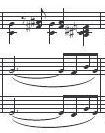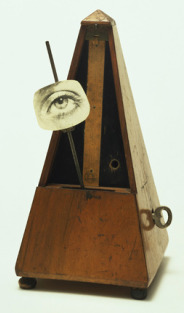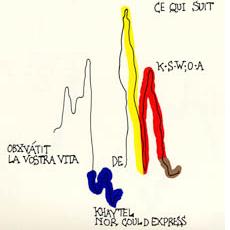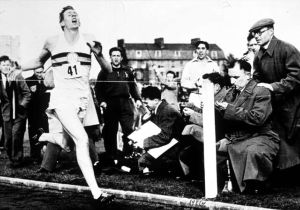In playing piano duets or two-piano music, just being together is particularly challenging. The beginning of the sound of a note played on the piano is definite and sudden. What might pass for good ensemble playing in the performance of a piece for violin and piano (with the violin's characteristically less-instantaneous note-beginnings), will be unsatisfying in 2-piano playing. Pianists playing together become note-arrival authorities. As I was … [Read more...]
Beat It
Walking across the campus of a big Midwestern university, I hear drumming. The drumline from the school's marching band is practicing outdoors, with a very loud metronome. Big speakers blast out the regular electric beats -- quite a lot louder than twenty drummers drumming. These beats sound like gunshots. The music is intricate with a lot of syncopation, and these kids fit it all in, around the clicks. This kind of practicing is not so … [Read more...]
Art is long
Long notes are more important than short notes. Pianists often get confused. Because we don't hold out long-duration tones with bow or breath, it's easy to underestimate their significance. Virtuoso pianists spend so much time attending to what's difficult in virtuoso pieces that it can seem these difficulties -- often passages of short, quick notes -- really are the most important thing in a piece of music. Frequently, it's the other way … [Read more...]
Piano Darwinism
Olivier Messiaen's Quartet for the End of Time has gotten easier to play. Fifteen years ago, I learned the piece and performed it, finding the music quite difficult. There were rhythmic complexities, and ensemble challenges. Especially in the first movement ("Liturgie de cristal"), andin the sixth movement ("Danse de la fureur, pour les sept trompettes"), it was difficult just to stay together with the other players. Around the world last … [Read more...]




